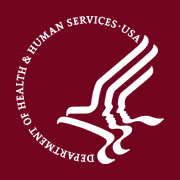HHS, CMS Announce Finalized Ruling for MACRA Legislation
MACRA legislation will position providers to participate in Medicare reimbursement through two avenues: the Merit-Based Incentive Payment System or the Advanced Alternative Payment Models.

- The Department of Health & Human Services (HHS) announced in a press release the discharge of the final ruling on the Medicare Access and CHIP Reauthorization Act of 2015 (MACRA). The MACRA legislation replaces the flawed Sustainable Growth Rate Formula and creates a new payment system for clinicians and Medicare based around quality and patient-centered care.

The Centers for Medicare & Medicaid Services (CMS) looks to advance payment innovation through MACRA legislation and further build on the Quality Payment Program. Additionally, MACRA legislation will support small practices by offering $20 million annually to train Medicare clinicians in medical facilities of 15 clinicians or less, the release states.
“Today, we’re proud to put into action Congress’s bipartisan vision of a Medicare program that rewards clinicians for delivering quality care to their patients,” HHS Secretary Sylvia M. Burwell said in a public statement. “Designed with input from thousands of clinicians and patients across the country, the new Quality Payment Program will strengthen our healthcare system for patients, clinicians and the American taxpayer.”
Commercial payers may need to align their interests with CMS and MACRA legislation in order to have a more standardized list of healthcare quality measures in value-based care reimbursement contracts. This would enable providers to minimize administrative burden by having identical benchmarks to reach among multiple payers.
MACRA legislation is bringing the Medicare program to pay for what works in patient care and ensure spending is more consistent, HHS states. Additionally, MACRA legislation builds on the healthcare reform that has been accomplished through the Affordable Care Act.
Payment reform under the finalized rule should bring providers to align their interests with quality care, wellness, disease prevention, and care coordination. MACRA legislation simplifies administrative burdens that providers have faced in prior years while incentivizing better care.
Additionally, providers have the opportunity to participate on a flexible performance period. Clinicians who are ready to take part in MACRA legislation and the finalized rule can begin so immediately while others who are less prepared can do so later in the coming year.
“It’s time to modernize the Medicare physician payment system to be more streamlined and effective at supporting high-quality patient care. To be successful, we must put patients and clinicians at the center of the Quality Payment Program,” Andy Slavitt, Acting Administrator of the Centers for Medicare & Medicaid Services (CMS), said in the press release.
“A critical feature of the program will be implementing these changes at a pace and with options that clinicians choose. Today’s policies are designed to get all eligible clinicians to participate in the program, so they are set up for successful care delivery as the program matures.”
The finalized rule on MACRA legislation also gives providers a path toward participating in models of care meant to keep patients healthy such as the accountable care organization. When the quality of care and coordination is improved while costs are reduced, the providers are able to share in the cost savings of that program.
The Quality Payment Program assists providers with operating new reimbursement models. With the input of the medical community, the Center for Medicare and Medicaid Innovation has played a role in improving quality of care while cutting healthcare spending by implementing innovative healthcare delivery ideas.
Under the finalized rule, the Center for Medicare and Medicaid Innovation is looking to broaden participation among small medical practices and clinics in new healthcare delivery models such as free diabetes prevention services among Medicare beneficiaries, bundled payments for hip and knee replacements, and value-based payment models for primary care physicians.
MACRA legislation will also position an annual $20 million funding for small physician practices of 15 clinical professionals or less. The funding will be used to assist clinicians in training for the Quality Payment Program. Local organizations will begin offering help to small practices as of December 2016, the news release states.
When the initial proposed rule for MACRA legislation was published in April 2016, the biggest aspect of the regulation that changed the future course for the healthcare industry is the end of meaningful use requirements. The EHR Incentive Programs will be replaced by the Advancing Care Information program in early 2017 while programs like the Physician Quality Reporting System (PQRS) and Value Modifier Program will be combined under a new system called the Merit-Based Incentive Payment System (MIPS).
“Within MIPS, the second pathway of the Quality Payment Program, we believe that the unification into one Quality Payment Program can best be accomplished by making connections across the four pillars of the MIPS payment structure identified in the MACRA legislation – quality, clinical practice improvement activities, meaningful use of CEHRT, and resource use – and by emphasizing that the Quality Payment Program is at its core about improving the quality of patient care,” the finalized rule stated.
“Indeed, the bedrock of the Quality Payment Program is high-quality, patient-centered care followed by useful feedback, in a continuous cycle of improvement. The principal way MIPS measures quality of care is through evidence-based clinical quality measures (CQMs) which MIPS eligible clinicians can select, the vast majority of which are created by or supported by clinical leaders and endorsed by a consensus-based process. Over time, the portfolio of quality measures will grow and develop, driving towards outcomes that are of the greatest importance to patients and clinicians.”
MACRA legislation will move the nation forward by positioning providers to participate in either MIPS or the Advanced Alternative Payment Models (Advanced APMs). MIPS will incorporate meaningful use as well as the PQRS and the Physician Value-based Payment Modifier System.
For more information about MACRA legislation, take a look at the links below.
Quality Payment Program Website
Quality Payment Program Executive Summary
